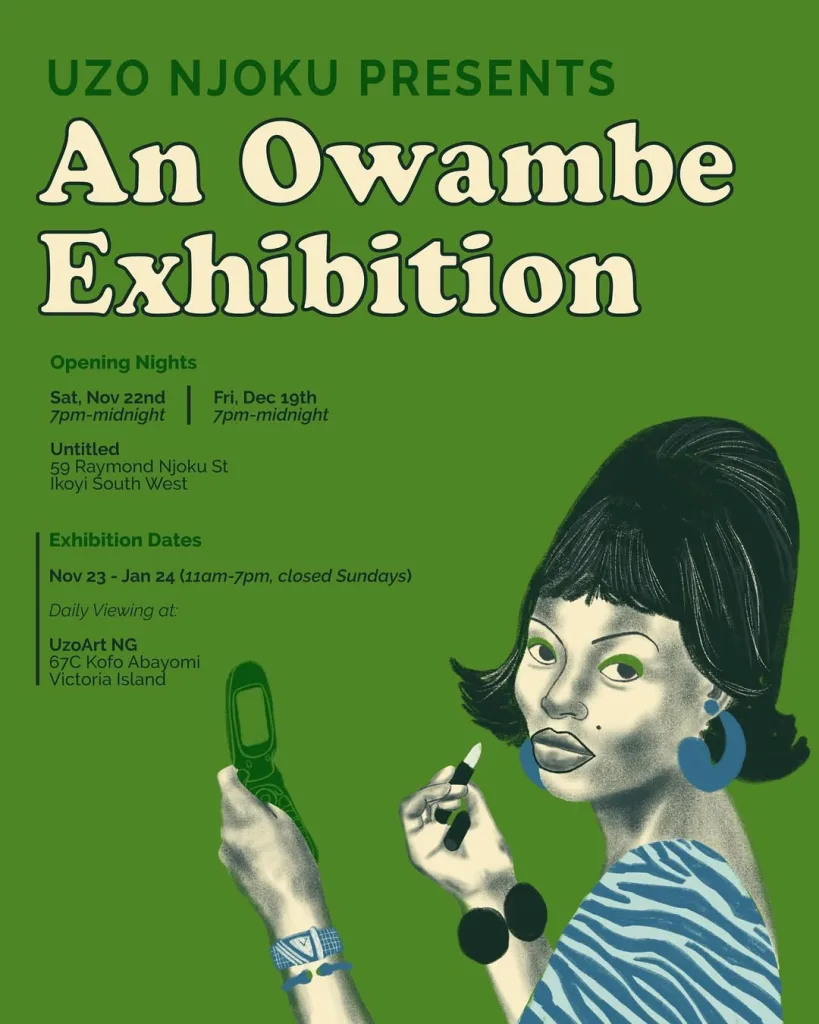In a shocking turn of events, more than 10,000 people have allegedly signed a petition demanding the cancellation of Nigerian American artist Uzo Njoku’s upcoming show, An Owambe Exhibition.

The exhibition, set for November in Lagos, has ignited intense backlash both online and offline. At the heart of the dispute lies the Yoruba concept of “owambe,” a word that describes grand, colorful parties celebrating weddings, birthdays, and other major community milestones.
Critics accuse Njoku of borrowing Yoruba traditions without proper acknowledgement or consultation. The petition, which continues to circulate widely on social media, calls the show a “misrepresentation of Yoruba culture” and insists it be withdrawn.
On X, formerly Twitter, reactions have been sharp and emotional. One user wrote,
“Your name is Uzo but you want to do Owambe Exhibition. You people like to hijack what’s not yours.” Another added, “Owambe is not just aesthetics, it is lived experience. Stop reducing it.”
Njoku has publicly responded, pointing to how quickly the petition gained traction. On X, she remarked,
“10,000 signatures to petition me. I’m actually impressed how fast that was done. Imagine if that energy was applied towards corruption or improved governance.”
Supporters of the petition argue that cultural exhibitions must include community voices. Others, however, warn that silencing the show risks undermining artistic freedom. As the controversy grows, Yoruba cultural associations and public commentators are urging dialogue, with some calling on the Ministry of Arts and Culture to step in.
The debate has also sparked claims of double standards. One user wrote,
“The attacks on @uzoart are ridiculous because just two years ago, Kayode Kasum, an indigenous Lagosian, made one of Nigeria’s most celebrated films about Igbo culture, Áfàméfùnà: An Nwa Boi Story (2023), and there was not a single complaint about cultural appropriation.”
Njoku has since offered clarifications. She explained that minor marketing adjustments, such as changing the “m” to “n” in the exhibition’s branding, are possible. She stressed that her work goes beyond tribalism, adding, “I welcome anyone to take me to court, and my legal team will be ready. Even the Adire tote bag workshop is run by a Yoruba team who keep all the profits.” She also confirmed that she has tightened security measures to ensure visitors’ safety during the show.
Amid the uproar, many observers note the irony of art becoming a flashpoint for division. An exhibition meant to celebrate owambe, a symbol of joy, community, and togetherness, has instead sparked a contest of ownership. While concerns about respect and representation remain valid, the larger truth is that culture grows stronger when it unites rather than divides. Nigeria’s heritage is rich and layered, deserving both protection and openness. The greater challenge lies in honoring tradition while allowing creativity to flourish without making every difference a reason for conflict.

